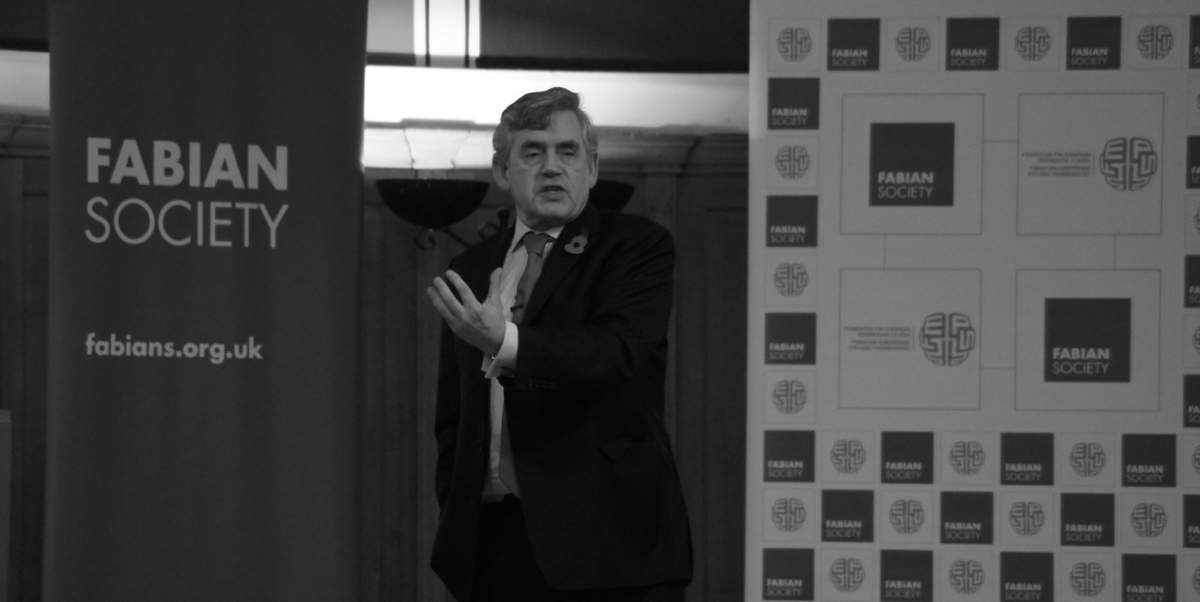A federal future
His most famous intervention in a referendum campaign was widely credited with saving the Union. But when Gordon Brown weighed in on the side of remain earlier this year, he found himself, unlike with the Scottish vote, on the losing...
His most famous intervention in a referendum campaign was widely credited with saving the Union. But when Gordon Brown weighed in on the side of remain earlier this year, he found himself, unlike with the Scottish vote, on the losing side. Both Brexit and Scotland were to the fore again today, as the former PM made a powerful call for a new ‘federal and fairer’ UK.
Speaking at a Fabian Society event, Brown said the United Kingdom was in the ‘most perilous condition’ seen since the Act of Union in 1707 – a ‘United Kingdom in name only’. Inequality was growing, the north-south divide was increasing and the government had lost control of the Brexit debate. And many of those areas where the leave vote was strongest were most at risk from the post-Brexit economic fallout. “The optimism many leave voters felt when they saw the result will soon be replaced by anger when they see jobs being lost in the north and living standards in the north starting to fall,” he said.
Brown’s view was that the referendum result was a popular revolt, where the ‘losers’ in the new global economy were driven to vote leave by deep-seated resentments over their unequal treatment. It’s a compelling argument: as Fabian Society analysis has shown, the losers in public spending terms voted most heavily in favour of Brexit, while the winners were the most pro-remain.
But now that the referendum is over, what next if the divisions it exposed are to be in any way bridged? According to Brown, the answer is to be found in a new constitutional settlement which would both tackle the structural inequalities that fuelled the Brexit vote and provide a fresh opportunity for Scotland, currently trapped between the extremes of the SNP and the Tories, and for the other nations that make up the UK. “If we rethink the way the UK is structured, then the energy from the regions and the nations will make Britain a different and more outward-looking country,” he said.
Brown’s new settlement would be informed by a ‘people’s convention’, empowering the different parts of the UK to have a say in how the new federation of nations and regions would be set up. Another major plank of his plan is a repatriation of powers from Brussels over issues such as agriculture, fisheries and social funds not to Westminster and Whitehall but to the nations and regions. This would be accompanied by the power to spend more than half of the £4bn currently spent by the EU in the UK. And interestingly too, reform of the House of Lords would also be part of the Brown deal, with the upper house replaced by an elected senate of the nations and regions.
Constitutional reform has not traditionally been an area with real voter appeal. But Brown made a compelling case for a federal way forward which would go beyond a mere administrative overhaul and offer a genuine chance to heal a fractured Britain. Constitutional renewal, he said, could be part of the process of recovering the values of liberty, tolerance and fairness that unite the UK. Post-Brexit Britain will never be the same as it was before the vote; the question is whether it will turn in on itself or look outwards.
The calls for a new settlement clearly have resonance on the left. MPs Jon Trickett and Alison McGovern, who shared the platform at the Fabian event in partnership with FEPS, both advocate a federal future.
Trickett said further devolution of power was needed to stem the tide of resentment and anger among voters. “Those with ears to hear here in Westminster will know the previous whisper of discontent has become a roar,” he said. McGovern, too, said the need for reform was clear. “It’s patently obvious that the regions outside London and the south east are not heard equally,” she said. “We need a constitutional convention so we can decide our future on equal terms.”
And her message that reform offers an opportunity for Labour is an important one. As she made clear, the party has always campaigned for the redistribution of wealth and power. If a genuinely federal future offers this, it could well become a cause that it – and more importantly those that it seeks to represent – can unite around.

